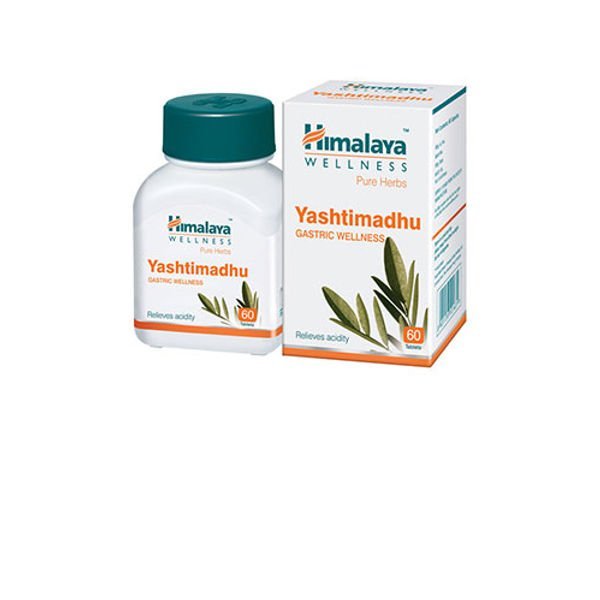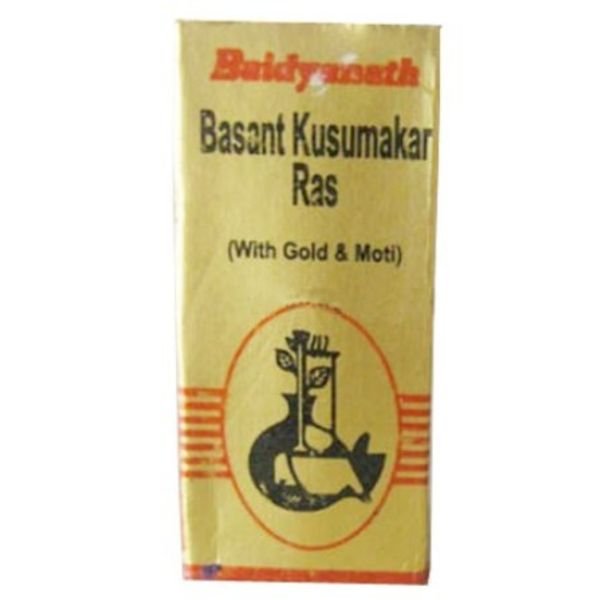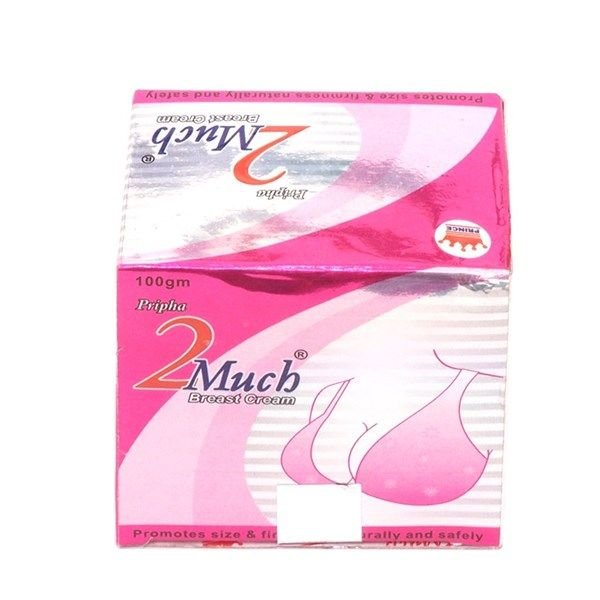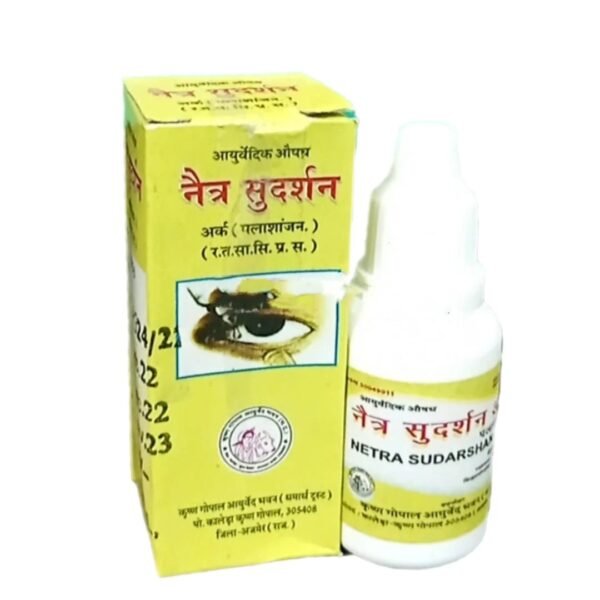Yashtimadhu, also known as licorice root, is a popular herb in Ayurveda, the ancient Indian system of medicine. For centuries, it has been used to treat various ailments, especially those related to the throat and digestion. Today, people around the world are rediscovering its many benefits and incorporating it into their daily routines.
Key Takeaways
- Yashtimadhu, or licorice root, is a well-known herb in Ayurvedic medicine.
- It is effective for soothing throat irritations and boosting immunity.
- The herb also supports digestive health and can be used in various forms like teas, powders, and capsules.
- Scientific studies have shown its active compounds and confirmed its safety and side effects.
- Quality selection, proper storage, and understanding its shelf life are important for maintaining its potency.
The History and Origins of Yashtimadhu
Himalaya Yashtimadhu 60 Tablets
You save
Himalaya Yashtimadhu: The root of Yashtimadhu or Glycyrrhiza glabra Linn is used as a drug for strengthening muscle and bone
Ancient Ayurvedic Texts
Yashtimadhu, also known as Licorice root, has been a staple in Ayurvedic medicine for centuries. Ancient texts like the Charaka Samhita and Sushruta Samhita mention its use for various ailments, especially for soothing the throat and respiratory issues. The herb was often combined with other ingredients to enhance its healing properties.
Traditional Uses in Different Cultures
Beyond India, Yashtimadhu found its way into the traditional medicine of many cultures. In China, it was used in Traditional Chinese Medicine (TCM) to balance the body’s energy. The Greeks and Romans also valued it for its sweet flavor and medicinal benefits. Licorice root was often chewed to relieve thirst and fatigue during long journeys.
Modern Rediscovery
In recent years, there has been a renewed interest in Yashtimadhu due to its potential health benefits. Modern science has begun to explore its active compounds, leading to a better understanding of how it works. This rediscovery has made Yashtimadhu a popular ingredient in natural health products and supplements.
Yashtimadhu’s journey from ancient texts to modern shelves shows its enduring value in herbal medicine.
Health Benefits of Yashtimadhu
Soothing Throat Irritations
Yashtimadhu is well-known for its ability to soothe throat irritations. This herb can help reduce inflammation and provide relief from a sore throat. Many people use it in teas or lozenges to calm their throat.
Boosting Immunity
Another great benefit of Yashtimadhu is its potential to boost immunity. It contains compounds that can help the body fight off infections and stay healthy. Including this herb in your daily routine can support your immune system.
Digestive Health
Yashtimadhu also supports digestive health. It can help with issues like indigestion and stomach ulcers. By promoting a healthy digestive system, this herb can make you feel better overall.
Yashtimadhu is a versatile herb that offers multiple health benefits, making it a valuable addition to your wellness routine.
How to Use Yashtimadhu in Your Daily Routine
Teas and Infusions
One of the easiest ways to enjoy Yashtimadhu is by making teas and infusions. Simply steep the root in hot water for a few minutes. This method is great for soothing throat irritations and can be enjoyed daily.
Powder and Capsules
Yashtimadhu is also available in powder and capsule forms. These are convenient options for those who are always on the go. You can mix the powder into smoothies or take the capsules with water.
Topical Applications
For skin issues, Yashtimadhu can be applied topically. Mix the powder with a little water to make a paste and apply it to the affected area. This method is often used in traditional Ayurvedic practices.
Yashtimadhu, also known as licorice root, is a versatile herb that can be easily incorporated into your daily routine. Whether you prefer teas, powders, or topical applications, there’s a method that will suit your needs.
Scientific Studies on Yashtimadhu
Clinical Trials and Findings
Recent clinical trials have shown that Yashtimadhu can be effective in treating throat irritations and boosting immunity. One study found that participants who used Yashtimadhu had a significant reduction in throat pain compared to those who did not. Researchers are also exploring its potential benefits for digestive health.
Active Compounds
Yashtimadhu contains several active compounds, including glycyrrhizin, which is known for its anti-inflammatory and immune-boosting properties. These compounds work together to provide the herb’s health benefits. Here’s a quick look at some of the key compounds:
| Compound | Benefit |
|---|---|
| Glycyrrhizin | Anti-inflammatory |
| Flavonoids | Antioxidant |
| Saponins | Immune support |
Safety and Side Effects
While Yashtimadhu is generally safe for most people, it can cause side effects if taken in large amounts. Some common side effects include headaches and high blood pressure. It’s important to follow recommended dosages to avoid these issues.
Yashtimadhu has been used for centuries in traditional medicine, but modern science is just beginning to uncover its full potential. Always consult with a healthcare provider before starting any new supplement.
Growing and Harvesting Yashtimadhu
Ideal Growing Conditions
Yashtimadhu, also known as licorice, thrives in well-drained, sandy soils with plenty of sunlight. It prefers a temperate climate but can adapt to various conditions. Regular watering is essential, but the soil should not be waterlogged. The plant can be grown from seeds or cuttings, making it versatile for different gardening needs.
Harvesting Techniques
Harvesting Yashtimadhu requires patience, as the roots are the most valuable part and take about 2-3 years to mature. Once ready, the roots are carefully dug out to avoid damage. They are then cleaned, dried, and cut into smaller pieces for use. This process ensures the highest quality and potency of the herb.
Sustainability Practices
To ensure Yashtimadhu remains available for future generations, sustainable farming practices are crucial. This includes crop rotation, organic farming methods, and avoiding over-harvesting. Farmers are encouraged to plant new crops regularly to maintain a healthy supply. Sustainable practices not only protect the environment but also ensure the herb’s long-term viability.
Sustainable farming of Yashtimadhu helps preserve the environment and ensures that this valuable herb remains available for future use.
Yashtimadhu in Modern Herbal Medicine
Integration with Other Herbs
Yashtimadhu is often combined with other herbs to enhance its benefits. For example, it can be mixed with ginger to help with digestion or with turmeric for its anti-inflammatory properties. Combining herbs can create a more effective remedy for various health issues.
Formulations and Dosages
Yashtimadhu is available in many forms, including teas, capsules, and powders. The dosage depends on the form and the specific health condition being treated. Generally, a small amount is enough to see benefits. Always follow the recommended dosage on the product label.
Patient Experiences
Many people have shared positive experiences using Yashtimadhu. They report relief from throat irritations, better digestion, and improved overall health. Some even say it helps them feel more energetic and balanced.
Yashtimadhu has become a popular choice in modern herbal medicine due to its versatility and effectiveness.
Buying and Storing Yashtimadhu
Selecting Quality Products
When buying Yashtimadhu, it’s important to choose high-quality products. Look for reputable brands that provide detailed information about the herb’s source and processing methods. Always check for organic certification to ensure the product is free from harmful chemicals.
Proper Storage Methods
To keep Yashtimadhu fresh, store it in a cool, dry place away from direct sunlight. Use airtight containers to prevent moisture and air from degrading the herb’s potency. Glass jars are a great option for this purpose.
Shelf Life and Potency
Yashtimadhu typically has a long shelf life if stored correctly. However, it’s best to use it within a year to ensure maximum effectiveness. Regularly check for any changes in color, texture, or smell, which could indicate the herb is no longer potent.
Proper storage is key to maintaining the effectiveness of Yashtimadhu. Always keep it in a cool, dry place and use airtight containers to preserve its quality.
Yashtimadhu, also known as licorice root, is a popular herb used for its many health benefits. When buying Yashtimadhu, make sure to choose a trusted source to ensure quality. Storing it in a cool, dry place will help maintain its potency. For more tips on how to buy and store Yashtimadhu, visit our website today!
Conclusion
Yashtimadhu, also known as licorice root, is a powerful herb in Ayurvedic medicine. It is well-known for its ability to soothe sore throats and ease coughs. But its benefits don’t stop there. This amazing herb can also help with digestion, boost your immune system, and even reduce stress. Adding Yashtimadhu to your daily routine can improve your overall health in many ways. So, next time you’re feeling under the weather or just want to stay healthy, consider giving Yashtimadhu a try.
Frequently Asked Questions
What is Yashtimadhu?
Yashtimadhu is an herb used in Ayurvedic medicine. It is known for soothing throat irritations and has many other health benefits.
How can Yashtimadhu help my throat?
Yashtimadhu can help reduce throat irritation. It has natural properties that can soothe and calm your throat.
Can I use Yashtimadhu every day?
Yes, you can use Yashtimadhu daily. It can be taken as a tea, powder, or capsule. Always follow the recommended dosage.
Are there any side effects of using Yashtimadhu?
Yashtimadhu is generally safe, but some people might experience side effects like upset stomach. It’s best to consult a doctor before starting any new herb.
Where can I buy Yashtimadhu?
You can buy Yashtimadhu at health food stores, online, or at places that sell herbal products. Make sure to choose high-quality products.
How should I store Yashtimadhu?
Store Yashtimadhu in a cool, dry place. Keep it in an airtight container to maintain its freshness and potency.
-
Product on sale
 Baidyanath Basantakusmakar Ras (SMAY) (25 tab)Original price was: ₹2,020.00.₹1,349.00Current price is: ₹1,349.00.
Baidyanath Basantakusmakar Ras (SMAY) (25 tab)Original price was: ₹2,020.00.₹1,349.00Current price is: ₹1,349.00.
You save -
Product on sale
 2 Much Brest Cream 100gm and 2much capsule free insideOriginal price was: ₹350.00.₹315.00Current price is: ₹315.00.
2 Much Brest Cream 100gm and 2much capsule free insideOriginal price was: ₹350.00.₹315.00Current price is: ₹315.00.
You save -
 Netra Sudarshan Ark Eye Drops (15ml) | Kaleda₹30.00
Netra Sudarshan Ark Eye Drops (15ml) | Kaleda₹30.00
You save -
Product on sale
 Parth Sandha Oil/Sanda Oil/Sande ka tel 15ml combo of 6 packsOriginal price was: ₹1,944.00.₹599.00Current price is: ₹599.00.
Parth Sandha Oil/Sanda Oil/Sande ka tel 15ml combo of 6 packsOriginal price was: ₹1,944.00.₹599.00Current price is: ₹599.00.
You save -
Product on sale
 2Much Brest Cream 100gm combo of 2 packsOriginal price was: ₹700.00.₹630.00Current price is: ₹630.00.
2Much Brest Cream 100gm combo of 2 packsOriginal price was: ₹700.00.₹630.00Current price is: ₹630.00.
You save -
 Condom₹460.00
Condom₹460.00
You save -
Product on sale
 Durex Extra Ribbed – 10 Condoms (Pack of 1)Original price was: ₹269.00.₹242.00Current price is: ₹242.00.
Durex Extra Ribbed – 10 Condoms (Pack of 1)Original price was: ₹269.00.₹242.00Current price is: ₹242.00.
You save -
Product on sale
 Durex Air – 10 Condoms 10s (Pack of 1)Original price was: ₹269.00.₹249.00Current price is: ₹249.00.
Durex Air – 10 Condoms 10s (Pack of 1)Original price was: ₹269.00.₹249.00Current price is: ₹249.00.
You save -
Product on sale
 Name Tha New Height Veda is a scientifically formulatedOriginal price was: ₹1,999.00.₹899.00Current price is: ₹899.00.
Name Tha New Height Veda is a scientifically formulatedOriginal price was: ₹1,999.00.₹899.00Current price is: ₹899.00.
You save










